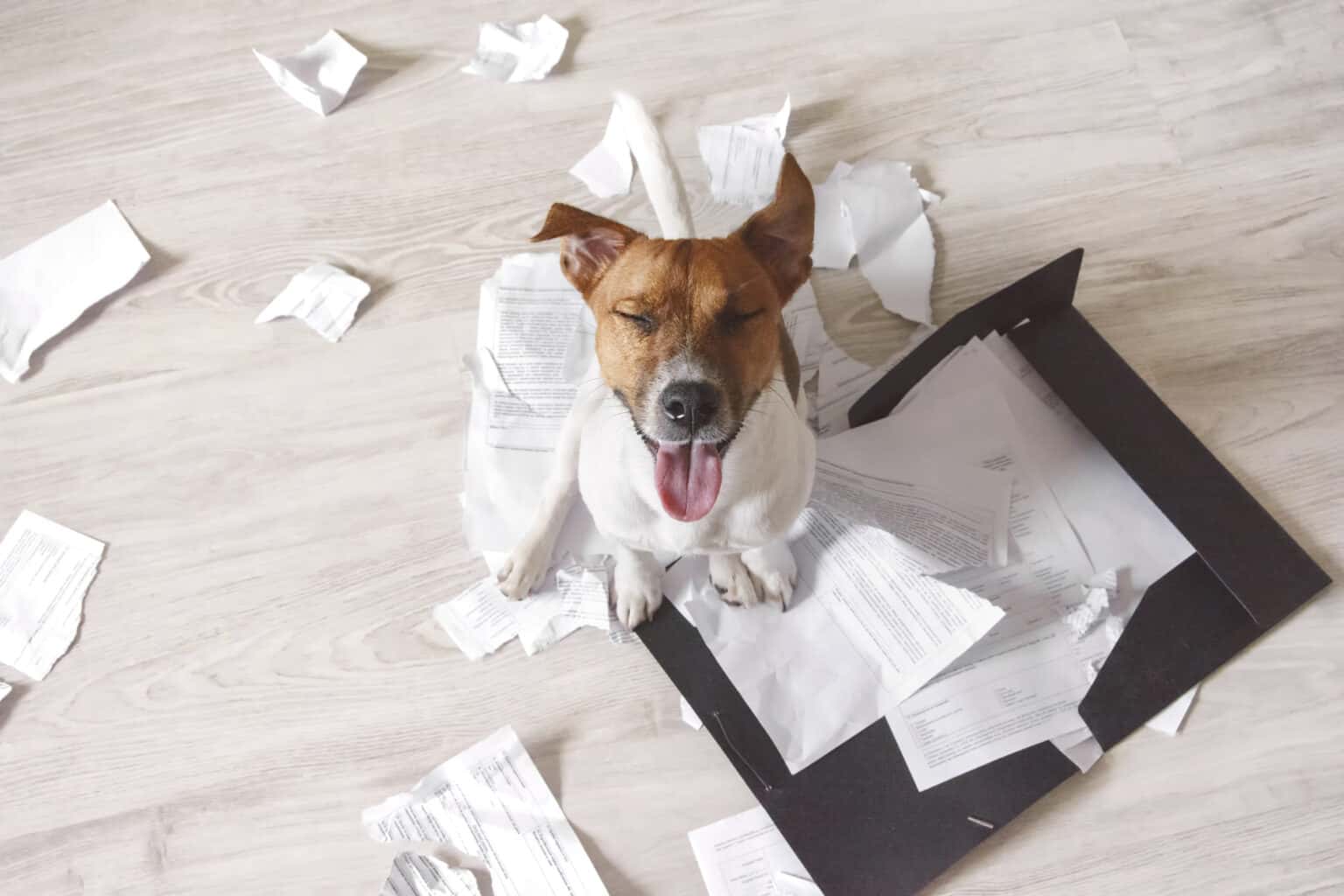The Dog Ate My Homework! What to Know When Your Pet Ate Something Harmful
 School’s back in session, and while the old “dog ate your homework” excuse doesn’t apply as well to the world of tablets and clouds as it did in the past, that doesn’t mean Fido is sticking to dog food. Foreign bodies in pets are a common occurrence in the veterinary world and can have some very serious consequences. Do you know what you’d do if your pet ate something harmful?
School’s back in session, and while the old “dog ate your homework” excuse doesn’t apply as well to the world of tablets and clouds as it did in the past, that doesn’t mean Fido is sticking to dog food. Foreign bodies in pets are a common occurrence in the veterinary world and can have some very serious consequences. Do you know what you’d do if your pet ate something harmful?
When Dinner Isn’t Enough
Anything that doesn’t belong in the intestinal tract is considered a foreign body. Non-food objects can get stuck anywhere along the way, from the oral cavity to the esophagus, or even within the stomach or intestines. Some objects may simply be too large to pass through, while others cause abnormal motility of the digestive system.
Certain objects are more likely to become foreign bodies than others. Pets most often ingest:
- Toys or balls
- Garbage and other objects that smell like food
- Cloth, particularly items like underwear or socks
- Indigestible food objects, such as corn cobs or fruit pits
- Rocks
- String or ribbon
- Pieces of plastic, rubber, carpeting, or foam
We don’t always know why dogs and cats decide to ingest certain objects. To protect your pet, it is always best to remove objects that pose a temptation.
Likewise, if your pet ate something he or she shouldn’t have, consider it a potential emergency. Please call immediately for advice, as quick action can be important.
Consequences of Foreign Bodies in Pets
More often than we even realize, foreign objects make their way through the digestive tract without causing any trouble. Sometimes, however, circumstances dictate that we need to intervene. We will recommend removing foreign bodies in pets when:
- The object itself is too dangerous to allow to pass
- The object becomes lodged
- The object punctures or perforates the intestine
- The object is not passing on its own
- The object is valuable to the owner
If ingested recently enough and not dangerous, we may try to induce vomiting to retrieve a foreign body. We do not recommend ever inducing vomiting on your own without direct supervision, as in some instances this can cause more harm than good.
Sometimes an object can be retrieved by endoscopy, in which a small flexible camera is introduced into the digestive tract. More often than not, though, foreign bodies in pets need to be retrieved surgically. Incisions are created in the appropriate location of the intestinal tract in order to remove the offending object. When damage has been incurred, portions of the intestines may need to be removed entirely.
Help! My Pet Ate Something!
Pets are notorious for eating objects they shouldn’t. Any pet who is vomiting, experiencing diarrhea, or refusing to eat should be examined right away. The doctors as BEEVET Animal Hospital are here for you and your furry friend.
